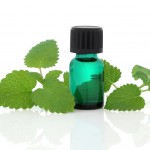
It has been widely reported that antipsychotics have been frequently used to treat the behavioural and psychological symptoms that affect people with dementia and that this course of action has resulted in an estimated 1,800 excess strokes and 1,600 excess deaths in the UK alone. This double-blind, parallel-group, placebo-controlled randomised trial looks at one of the potential alternative treatments: aromatherapy with melissa oil.
The aim of the trial was to assess the efficacy of melissa aromatherapy in the treatment of agitation in people with Alzheimer’s disease in an adequately powered and robustly blinded randomised controlled trial comparing it with donepezil, an anticholinesterase drug used with some benefit to treat behavioural and psychological symptoms.
The research was led by a team from Manchester University, drawing patients from 3 specialist old age psychiatry centres in England. Participants in the trial had to meet the following criteria:
- Diagnosed with probable or possible Alzheimer’s disease
- Were resident in a care home
- Had clinically significant agitation (defined as a score of 39 or above on the Cohen Mansfield Agitation Inventory)
- Were free of antipsychotics and/or anticholinesterase for at least 2 weeks
Participants were randomly allocated to 1 of 3 interventions:
- Placebo medication and active aromatherapy
- Active medication and placebo aromatherapy
- Placebo medication and placebo aromatherapy
Outcomes were measured at baseline, 4-weeks and 12-weeks using the Pittsburgh Agitation Scale and the Neuropsychiatric Inventory. The Pittsburgh Agitation Scale is an observational tool and raters were required to wear nose clips to ensure that full blinding was maintained.
Overall, 114 participants were randomised, with 94 completing the first 4 weeks and 81 completing the full 12 weeks.
Aromatherapy and donepezil were well tolerated. There were no significant differences between aromatherapy, donepezil and placebo at week 4 or week 12, but importantly there were substantial improvements in all 3 groups with an 18% improvement in the Pittsburgh Agitation Scale and a 37% improvement in the Neuropsychiatric Inventory over 12 weeks.
The researchers concluded:
When assessed using a rigorous design which ensures blinding of treatment arms, there is no evidence that melissa aromatherapy is superior to placebo or donepezil, in the treatment of agitation in people with Alzheimer’s disease. However, the sizeable improvement in the placebo group emphasizes the potential non-specific benefits of touch and interaction in the treatment of agitation in people with Alzheimer’s disease.
Burns A, Perry E, Holmes C, Francis P, Morris J, Howes MJ, Chazot P, Lees G, Ballard C. A double-blind placebo-controlled randomized trial of Melissa officinalis oil and donepezil for the treatment of agitation in Alzheimer’s disease. Dement Geriatr Cogn Disord. 2011;31(2):158-64. Epub 2011 Feb 19. [PubMed abstract]

Hi Andre
Can I please ask what “brand” of Melissa oil was used for the trial?
Kind regards
Wendy